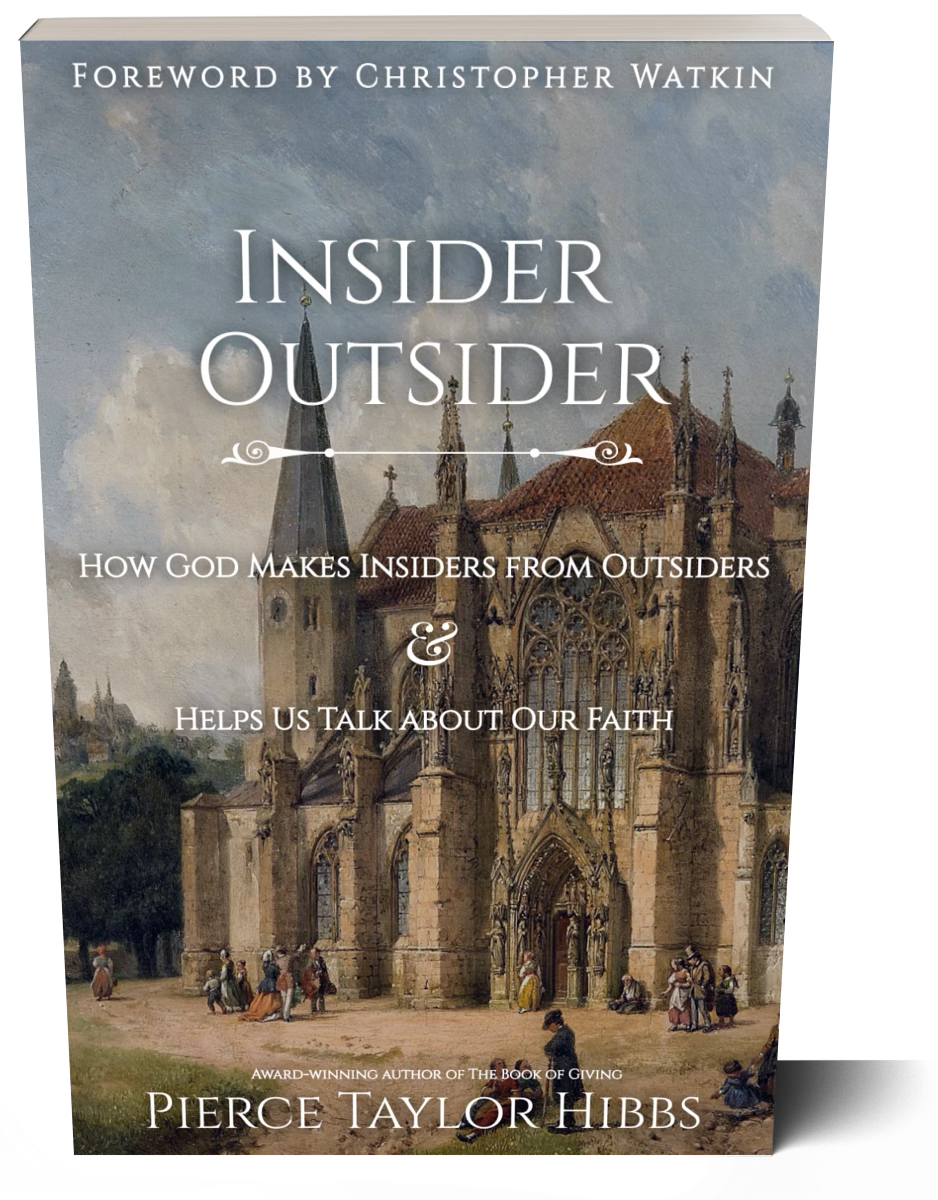A New Book on Reformed Apologetics: LAUNCHING
Get exclusive early access to my next book, Insider Outsider.
It’s time again. I’m launching another book into the world. It’s the first time I’m writing something that engages with apologetics and culture, and I’m stoked about it! Christopher Watkin, author of Biblical Critical Theory (a recent favorite of mine), was kind enough to write the foreword. I’ve put that below so you can get a sneak peek of the content. But if you really want access to the book before anyone else, join the launch team on Facebook! I’ll be engaging a lot on there as we move toward the launch at the end of November. Hope to see you there! If you’re not on Facebook, but would still like to be part of the launch, just send me an email at wordsfrompth@gmail.com.
Foreword by Christopher Watkin
Your life, my life, and the life of everyone we have ever met moves to the rhythm of the difference between inside and outside. The inside/outside opposition is one of the mythical binaries that run through both ancient and modern social imaginaries, shaping our understanding of the world and of ourselves, as well as informing our assumptions, our hopes, and our fears. We see it in the distinction between the sacred and the profane in most of the world’s religions; we see it in the modern philosophical distinction between subject and object; we experience it every day as the difference between inclusion and rejection, trust and suspicion.
As this book will help you to see, the Bible has a peculiar, surprising, and ultimately life-bringing take on this universal human duality. In the incarnation, the God who is outside creation steps inside his world as the man Jesus Christ. And this same Christ becomes an outsider: hated, misunderstood, and abandoned by his friends in death. As the writer to the Hebrews explains, all through the Old Testament the bodies of the animals whose blood is brought into the holy place are burned outside the camp, and Jesus also suffered outside the gate, to bring sanctification through his own blood: Christ treads the lonely road that leads to the outside, so that he can bring us inside. And in that same passage this inside-outside movement is set forth as the pattern for the Christan life, as we go to him outside the camp and bear the reproach he endured, becoming outsiders with him, having no lasting city here but seeking the city that is to come, where we will live in glory as eternal insiders with God.
But the insider/outsider paradigm is not just the pattern of our glorious salvation and of the Christian life. It is also a model for our apologetics. During a conversation on the Mere Fidelity podcast in March 2022, Timothy Keller argues for the importance of what he calls the insider/outsider dynamic: the outsider is not enough of an insider to see everything the insider perceives in culture, but the insider is blind to many things within their own culture. Apologists need to be both insiders and outsiders. Perhaps no figure in the history of the Christian church has embodied this insider/outsider dynamic more richly than Augustine in The City of God. An insider to Roman culture, Augustine taught rhetoric in Carthage and Rome, and he could explain how Cicero fizzed and sparkled to his Roman readers. But he also looked on Roman culture with the eyes of a consummate outsider, his intuitions and assumptions thoroughly formed by the Scriptures and not by Rome’s own patterns of life and thought.
In view of the fundamental importance of the insider/outsider distinction, what a gem of a book you currently hold in your hands (or see on your screen!). Pierce Taylor Hibbs deploys the powerful apologetic of a biblical theological framework to tease out the crucial movements between inside and outside that rhythm the biblical narrative from Genesis to Revelation. The vigor and dynamism of the Bible’s storyline ripples through the pages of this book, adorned by an attention to language and a poetic sensibility that makes God’s truth shine and sing. Hibbs gloriously foregrounds the importance of beauty in apologetics, not beauty as opposed to truth but the beauty of the truth. He weaves poetry and prayer into his chapters, inciting his readers to praise as well as offering them a feast of biblical truth. It is my prayer that these pages may help you to sing the praises—perhaps even for the first time—of the God who became an outsider so that he could make you an insider.


